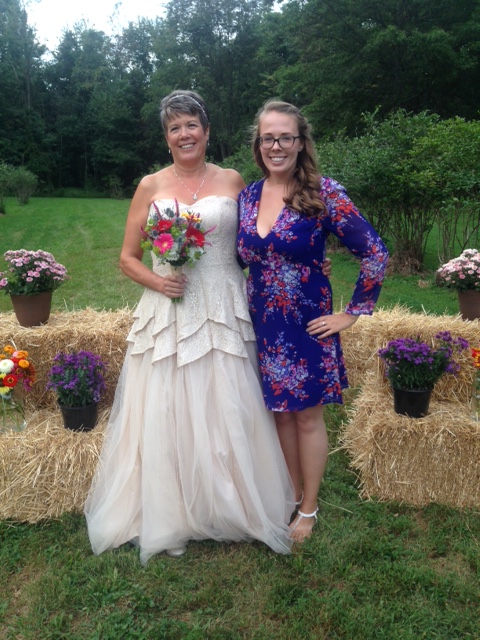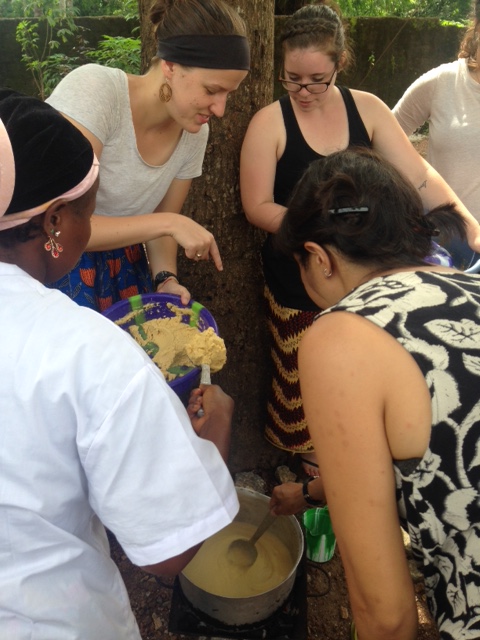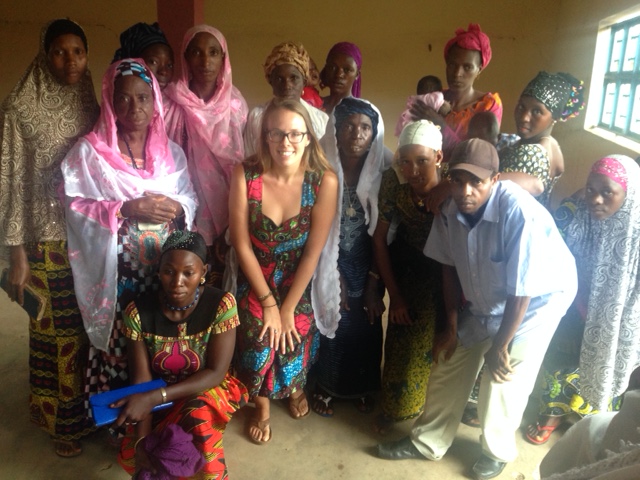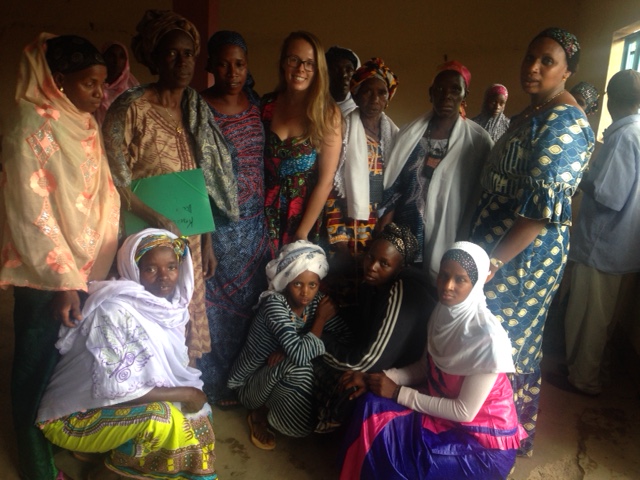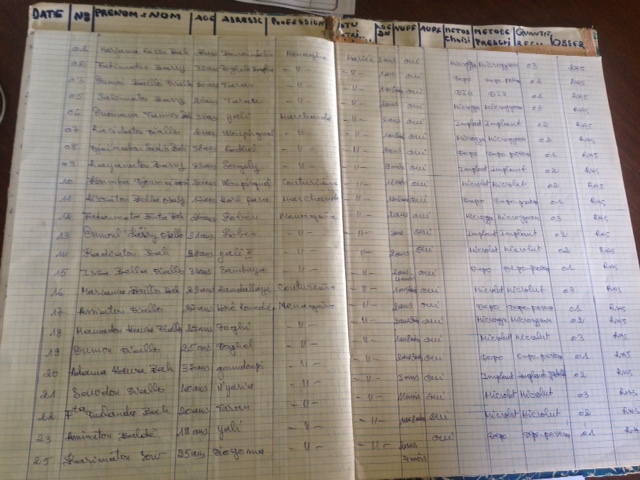Early termination is a term that carries a lot of weight in the Peace Corps community. There’s a definite stigma surrounding the term, and unfortunately it’s a negative one. A Peace Corps Volunteer can decide to end their service before their contact is finished, and doing so is considered Early Termination.
While technically this is a volunteer position, it’s also very much a job. And while very few people would judge someone for leaving a job where they were unhappy, this is often not the case for Peace Corps Volunteers. It’s unfortunate, but within the Peace Corps community I’ve found there to be a shame around the idea of ETing.
I’ve considered ETing many times during my service, for many different reasons. I considered it in Mali after I’d been at site only a month or so. While I was greatly saddened by our evacuation from Mali, I also had a sense of relief. Here was my out: I could leave without saying I ETed. Yet at the end of our week long transition conference in DC, I had signed up to continue my service in Guinea. I got caught up in the excitement of a new country, and a new adventure. And I felt like I hadn’t really gotten to ever be a Peace Corps Volunteer. I’d done the training, but no projects. I hadn’t really gotten to do any of the things I’d joined the Peace Corps to do.
I struggled in Guinea too. I came close to ETing in June. Really within a weekends worth of time. I needed to discuss it with my mom before I could make the decision, but she was too busy to talk until Monday. By the time the weekend had passed, I’d resolved to stay.
I struggled again with the decision in September, as I was leaving a 2 week vacation at home to come back to Guinea. Getting on the plane to come back was one of the hardest things I’ve ever done. And the month following my return was exhausting. But I was busy with grad school applications, and convinced I needed to be in the Peace Corps to get into graduate school.
I’ve recently struggled again with the decision, but this time I’ve decided not to stay. And honestly, it’s a huge relief. I’ve decided to ET. I’ve decided to come home. This, thankfully, is the last time I’ll have to agonize over this decision.
There are a million reasons any PCV decides to end their service. And I’m sure for most, it’s an agonizing decision, as it was for me. But in the end, you have to do what’s right for you, and I’m certain this is the right decision for me.
I’m sure most of you reading this are wondering what the final catalyst was for the decision. What pushed me over the edge this time, that hadn’t before? The straw that broke the camel’s back was a change in a PC rule that infuriated me. Probably beyond reason, but something cracked, and I decided I needed to go home.
But the deeper, underlying reasons are really what spurred my decision. They say Peace Corps changes you. And it’s true. I’ve changed, and I’ve learned a lot about myself. I wouldn’t trade this experience for anything because I’ve grown as a person and learned invaluable lessons about myself, the world, and what I want in my future career. I’m better prepared for a career in public health and international development because of my Peace Corps service that I could be through any other experience. But there have been changes in my personality that I don’t like and that I don’t want to continue.
I’ve always prided myself on my work ethic. I’ve had at least one job, sometimes as many as 3 at a time, since I was 15. Yet here I’ve become lazy. PC runs at a different pace, and I’ve struggled from the beginning to adjust to it. As hard as I try, there are days where you don’t do much accept read and sit under the mango tree with your host family. There are days where I’m ok with that, but mostly it drives me up the wall. I struggle with a work environment that doesn’t conform more to a traditional American work schedule. I want a job with more set hours, where I know have things to fill my time during those 8 to 9 hours, 5 days a week.
I’ve also taken on a negativity that I don’t like. PCVS bond over the trials of everyday life in their country of service, that’s normal. We gripe about being stared at, being asked to take people back to America with us, and having to eat rice and sauce day in and day out for weeks on end. But recently, it’s been more than that. I find that whenever I’m talking to another American, be it another PCV, or my friends and family in the USA, I complain. About everything. I have very little positive to say about anything. And I’m so tired of it. That’s not who I want to be. Ever.
For most of my service I’ve pushed myself to stay for a variety of reasons. In the end it always came down to that I hadn’t yet done what I came to do and that I was not a quitter. I’ve never quit anything in my life. The first job I quit was to join PC. I played 6 years of field hockey despite being the worst player on the team. I was a Girl Scout from Daisies until I was a senior in High School, and I now have a lifetime membership. I stick it out until the end. Always.
But now, I’ve completed 18 months of service and I’m unhappy. And it’s just not worth it anymore. I’ve done what I came to do. I started a peer education health group for women in my community. I at least tried to make a difference, and my homologue assures me I did, though I’m not so confident. And while, technically, I’m ending my service early, I don’t really feel like I’m quitting.
There was one more thing I always dreaded about ETing: telling my host family. I have adored them from the beginning. My homologue is technically my host brother and he did everything in his power to make me feel like part of the family. His daughter, who I refer to as my host sister, stole my heart from the get go. Aichatou Bah and I were nearly inseparable. She was glued to my side whenever I was at my host family’s house. Recently she took to calling me Neene Porto which is Pular for White Mommy.
It broke my heart to tell them I was leaving early. My homologue cried, which is very unusual for a Guinean man. But I did enjoy unloading all my stuff on them before I left: food, clothes, flashlights, coloring books, crayons, a watch, an old phone and my old glasses for my host mom. It was the least I could do to leave them with these gifts. I told my homologue that I could never give them enough gifts to signify my gratitude. My homologue told me I had been enough of a gift.
My leaving early is eased a little by the fact that another 30 volunteers recently arrived in Guinea. They will finish their training in February. At this time, I’m hoping one of these Public Health volunteers will be sent to my site to continue my work and start their own. My town, and especially Souleymane, my homologue, deserve another volunteer. They are kind people, and while I struggled, that doesn’t mean another volunteer won’t thrive there.
I will always treasure the memories I made during my Peace Corps service. It’s amazing the connections you can make while having so little in common with someone else, including language. My host mom always asked me how Aichatou Bah and I understood each other, when I knew so little Pular, and her so little French. I really can’t answer that, but we did have an understanding between us that went much deeper than words.
It’s time for me to move on. I’m not sure exactly what I’ll be doing when I return to the US. I plan on begging for a job at the ski resort I worked at in high school and college. I plan on volunteering with some sort of public health organization. I’m planning a trip to Peru to visit my college roommate, another PCV. I feel content and at peace with my decision and I’m happy and excited to be coming home.
As for the future of this blog, I’m not sure whether I’ll have any more posts to share. But I appreciate the support I’ve received about it throughout my service. It was not ever anything I thought I would enjoy, but it came to be one of my favorite things I did during my service. So thank you for reading.
